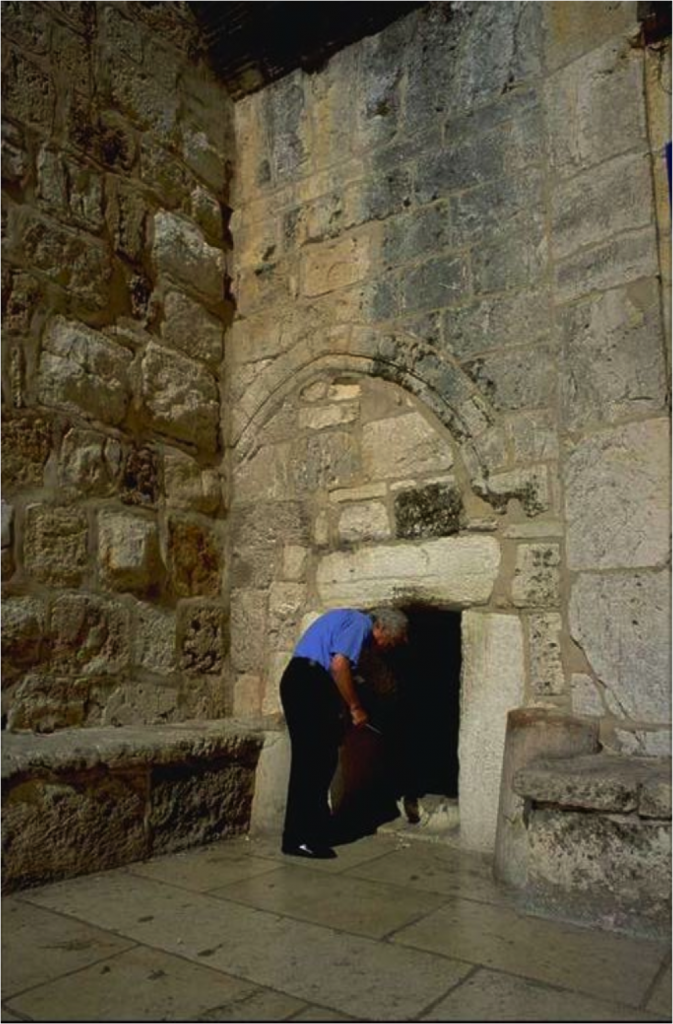Bethlehem: A Place for Little People
But you, Bethlehem, in the land of Judah,
are by no means least among the rulers of Judah;
For out of you will come a ruler
who will be the shepherd of my people Israel.
(Matthew 2:6; Micah 5:2)
Bethlehem is no more impressive today than it must have been in Jesus’ day. It is one of those places that one can get an accurate feel for the way things actually were, rather than the way so many biblical sites have been romanticized. Travel on the narrow streets brings one close to blighted business districts and face-to-face with the poverty and oppression of the Palestinians.
Neither is it much safer. I have been there twice, and each time the visit was conditioned on the current political stability. Twenty years ago, we were sneaked in a back way because the Palestinians had an intifada, a strike of sorts. The next time, we were racing to get in and out before harassment erupted against Christians. Later in the week, some students from Covenant Seminary visited and got a pelting with rocks.
There are really only two stops to make in Bethlehem. One is the olive wood store run by the Nissan family, a Christian family who has been crafting the highest quality olive woodcarvings in Israel for several generations.
The other stop is the truly important one, the Church of the Nativity. Superintended by three different churches—Armenian Orthodox, Greek Orthodox, and Roman Catholic—the church claims that its cellar contains the actual birthplace of Christ. The entrance to the church reminds the Christian to respond in humility to the One who took up the very form of a servant, because you cannot enter the church without bowing (Ph. 2:1-11).
The first church was built by St. Helena, Constantine’s mother, in A.D. 326. The present structure was built on top of the ruins of that basilica and dates back to the sixth century, which explains why you have to trek down to the cellar to see the grotto commemorating the place of Jesus’ birth. The supposed site of the manger is marked by a silver star, which was stolen in 1847 and purportedly sparked the Crimean War between the French and the Russians (1854-56).

While the actual place of Jesus’ birth is questionable, there is no question that the original basilica was the site where Jerome translated the Scriptures from Greek to Latin. It is called the Vulgate because Latin was the “vulgar” (or people’s) language.
Jerome lived in his monk’s cell for 35 years (A.D. 385 to 420) working to make the Bible readable to the masses. This monk came to Bethlehem to be quiet and out of the way. Maybe we would have called him an introvert. Some may have thought he was wasting his life in this small insignificant city, but it was the Vulgate that brought the Scriptures within the grasp of thousands for centuries. Not only that, Jerome’s example of translating the Scriptures to be read and preached in a common tongue inspired those who translated the Bible into German, English and French, and set off the Reformation.
Whatever small risk it is to visit Bethlehem, it’s well worth it to get a small taste of what our Savior was born into for our sake. He had to be born in Bethlehem to fulfill the prophecy that he would be born in the city of David (Lk. 2:11), a city of kings, but also to show that he was born to be a king unlike any other.
As Francis Schaeffer said in a chapter title, there are “No Little People, No Small Places” to the Lord. Bethlehem, with all its complex political issues, social tensions, poverty, and violence, is the city of our Lord—the one into which Jesus chose to be born. My pilgrim stop there reminds me that the Savior’s humiliating birth was so that I could be exalted as a “son of God” (Ga. 4:4-7).
